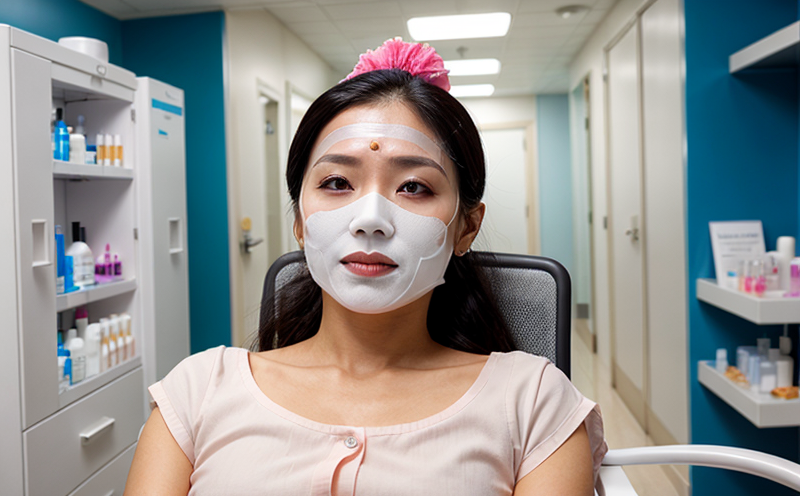
-
Cosmetic Product Testing-
Cosmetic Testing for Special Needs and Populations-
Clinical Trials for Cosmetics for Immune-Suppressed Patients
We provide comprehensive solutions designed to help our clients mitigate risks, enhance performance, and excel in key areas such as quality, health & safety, environmental sustainability, and social responsibility.
Discover
For many years, our organization has been operating successfully, boasting modern laboratories that meet international standards. These laboratories are equipped with the latest technology devices and equipment, and we have built a strong team of experienced and trained personnel to operate them.
DiscoverWelcome to Eurolab, your partner in pioneering solutions that encompass every facet of life. We are committed to delivering comprehensive Assurance, Testing, Inspection, and Certification services, empowering our global clientele with the ultimate confidence in their products and processes.
Discover
-
Cosmetic Product Testing-
Cosmetic Testing for Special Needs and Populations-
Clinical Trials for Cosmetics for Immune-Suppressed PatientsClinical Trials for Cosmetics for Immune-Suppressed Patients: A Comprehensive Review
The use of cosmetics by individuals with compromised immune systems has gained significant attention in recent years. Immune-suppressed patients, such as those undergoing chemotherapy, receiving immunosuppressive therapy, or suffering from autoimmune disorders, are particularly vulnerable to skin irritations and infections caused by conventional cosmetic products. In response to these concerns, the development of cosmetic products specifically designed for use on immune-compromised individuals has become a priority in the industry.
What are Clinical Trials?
Clinical trials are research studies that involve human participants who receive specific treatments or interventions to evaluate their safety and efficacy. These trials are crucial in determining whether new or existing treatments can be improved, and they play a vital role in advancing medical knowledge. In the context of cosmetics for immune-suppressed patients, clinical trials aim to assess the tolerance, safety, and efficacy of specially designed products that minimize the risk of adverse reactions.
Stages of Clinical Trials
Clinical trials are typically divided into four phases:
1. Phase 1: This initial stage involves a small group of healthy volunteers who receive the new treatment to evaluate its safety and identify potential side effects.
2. Phase 2: The focus shifts from safety to efficacy, with more participants receiving the treatment to assess its effectiveness in treating a specific condition or disease.
3. Phase 3: Large-scale trials are conducted on thousands of patients to confirm the treatments efficacy, compare it with existing treatments, and further evaluate its safety profile.
4. Phase 4: Post-marketing surveillance involves ongoing monitoring of the treatments performance after approval by regulatory authorities.
Clinical Trials for Cosmetics: Key Considerations
In the context of cosmetics, clinical trials involve assessing the safety and efficacy of products in terms of their skin tolerance, stability, and ability to deliver intended benefits. Key considerations include:

Pharmaceutical Compliance
Pharmaceutical compliance refers to the adherence of pharmaceutical companies and organizations to l...

Cosmetic Product Testing
The Complex World of Cosmetic Product Testing The cosmetics industry is a multi-billion-dollar ma...

Automotive Compliance and Certification
Automotive Compliance and Certification: Ensuring Safety and Efficiency The automotive industry is ...

Environmental Impact Assessment
Environmental Impact Assessment: A Comprehensive Guide Environmental Impact Assessment (EIA) is a c...

Trade and Government Regulations
Trade and government regulations play a vital role in shaping the global economy. These regulations ...

Lighting and Optical Device Testing
Lighting and Optical Device Testing: Ensuring Performance and Safety Lighting and optical devices a...

Chemical Safety and Certification
Chemical safety and certification are critical in ensuring the safe management of products and proce...

Aviation and Aerospace Testing
Aviation and Aerospace Testing: Ensuring Safety and Efficiency The aviation and aerospace industr...

Battery Testing and Safety
Battery Testing and Safety: A Comprehensive Guide As technology continues to advance, battery-power...

Renewable Energy Testing and Standards
Renewable Energy Testing and Standards: Ensuring a Sustainable Future The world is rapidly transiti...

IT and Data Center Certification
IT and Data Center Certification: Understanding the Importance and Benefits The field of Informatio...

Electrical and Electromagnetic Testing
Electrical and Electromagnetic Testing: A Comprehensive Guide Introduction Electrical and electrom...

Environmental Simulation Testing
Environmental Simulation Testing: A Comprehensive Guide In todays world, where technology is rapidl...

Electromechanical Safety Certification
Electromechanical Safety Certification: Ensuring Compliance and Protecting Lives In todays intercon...

Agricultural Equipment Certification
Agricultural equipment certification is a process that ensures agricultural machinery meets specific...

Railway Industry Compliance
Railway Industry Compliance: Ensuring Safety and Efficiency The railway industry is a critical comp...

Consumer Product Safety
Consumer Product Safety: Protecting Consumers from Harmful Products As a consumer, you have the rig...

Transportation and Logistics Certification
Transportation and Logistics Certification: A Comprehensive Guide The transportation and logistics ...

MDR Testing and Compliance
MDR Testing and Compliance: A Comprehensive Guide The Medical Device Regulation (MDR) is a comprehe...

Pressure Vessels and Installations Testing
Pressure Vessels and Installations Testing Pressure vessels are a critical component of various ind...

NEBS and Telecommunication Standards
Network Equipment Building System (NEBS) and Telecommunication Standards The Network Equipment Bu...

Military Equipment Standards
Military Equipment Standards: Ensuring Effectiveness and Safety The use of military equipment is a ...

Energy and Sustainability Standards
In today’s rapidly evolving world, businesses face increasing pressure to meet global energy a...

Fire Safety and Prevention Standards
Fire Safety and Prevention Standards: Protecting Lives and Property Fire safety and prevention stan...

Food Safety and Testing
Food Safety and Testing: Ensuring the Quality of Our Food As consumers, we expect our food to be sa...

Industrial Equipment Certification
Industrial equipment certification is a critical process that ensures industrial equipment meets spe...

Healthcare and Medical Devices
The Evolution of Healthcare and Medical Devices: Trends, Innovations, and Challenges The healthcare...

Product and Retail Standards
Product and Retail Standards: Ensuring Quality and Safety for Consumers In todays competitive marke...

Hospitality and Tourism Certification
Hospitality and Tourism Certification: Unlocking Opportunities in the Industry The hospitality and ...

Construction and Engineering Compliance
Construction and Engineering Compliance: Ensuring Safety, Quality, and Regulatory Adherence In the ...